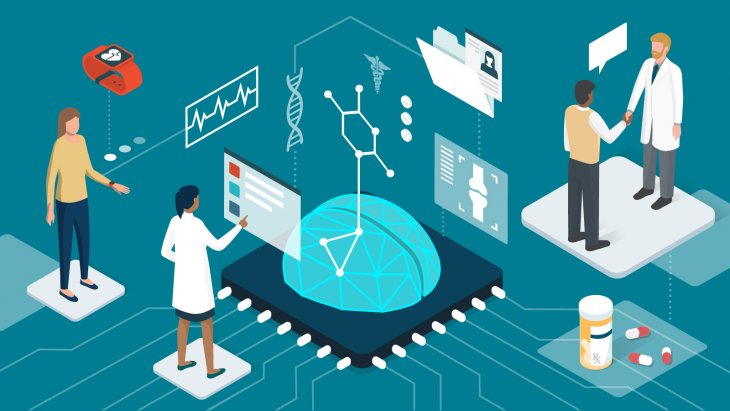AI in Healthcare A New Era of Medical Innovation
Artificial Intelligence (AI) is revolutionizing the healthcare industry, offering unprecedented opportunities to improve patient care, streamline processes, and accelerate medical research. By analyzing vast amounts of data, AI algorithms can identify patterns, make predictions, and assist in decision-making.
Key Applications of AI in Healthcare
- Medical Diagnosis:
- AI-powered image analysis tools can accurately diagnose diseases like cancer, heart disease, and skin conditions by analyzing medical images such as X-rays, MRIs, and CT scans.
- AI algorithms can analyze patient data to identify early warning signs of diseases and recommend preventive measures.
- Drug Discovery and Development:
- AI can accelerate the drug discovery process by predicting the effectiveness of drug molecules and identifying potential side effects.
- AI-powered tools can analyze clinical trial data to identify patterns and accelerate the development of new treatments.
- Personalized Medicine:
- AI can analyze patient data to develop personalized treatment plans, considering factors such as genetics, lifestyle, and medical history.
- AI-powered tools can predict patient outcomes and recommend the most effective treatment options.
- Robotic Surgery:
- AI-powered robotic surgery systems can perform complex surgical procedures with greater precision and accuracy.
- These systems can reduce surgical time, minimize patient trauma, and improve recovery time.
- Virtual Health Assistants:
- AI-powered virtual health assistants can provide 24/7 medical advice, answer health-related questions, and monitor patient health conditions.
- These virtual assistants can also help patients manage chronic conditions and adherence to treatment plans.
Challenges and Ethical Considerations
While AI offers immense potential, it also presents challenges and ethical considerations:1
- Data Privacy and Security: Protecting sensitive patient data is crucial to ensure ethical and responsible AI usage.
- Algorithmic Bias: AI algorithms must be trained on diverse and representative datasets to avoid biased outcomes.
- Human-AI Collaboration: AI should be used as a tool to augment human expertise, not replace it.
- Regulatory Framework: Clear regulations are needed to govern the development and deployment of AI in healthcare.
Despite these challenges, AI has the potential to transform healthcare and improve the lives of millions of people. By embracing AI responsibly and ethically, we can unlock its full potential and usher in a new era of medical innovation.
Would you like to learn more about a specific application of AI in healthcare or the ethical implications of AI in medicine?

